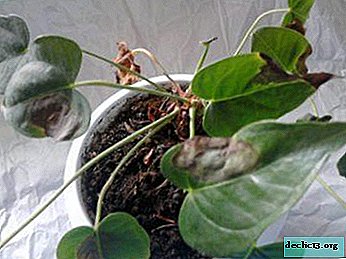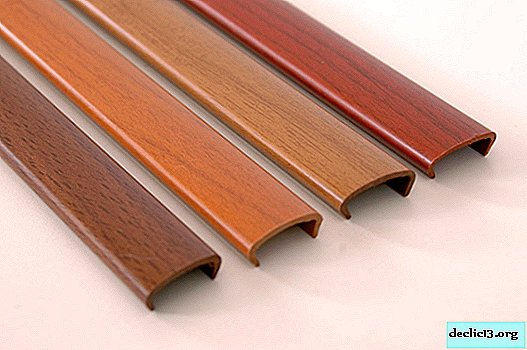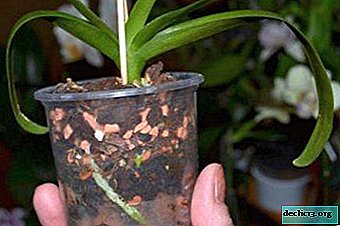How to catch crucian carp on a fishing rod - anglers tips

Crucian carp is one of the most common fish, which is popular among anglers. This fish differs noticeably from its congeners in appearance: slightly flattened, wide, with silver or golden scales. If your hobby is fishing, you are probably wondering how to catch crucian carp?
Golden is less common, grows in vivo to 2.5 kg. Silvery finer - up to 1.5 kg. In most cases, an incredible amount of silver crucian carp, mainly females, is found in water bodies. Spawning coincides with spawning of other fish, so a smaller, longer-growing fish appears. It is called mestizos or hybrids. In a number of regions of reborn silver carp are called buffalo and it compares favorably with other hybrids in size.
We catch crucian in the early spring.
The very first crucians fall into the fishermen's cages as soon as the ice melts. In the second half of April, when the water heats above 12 aboutC, production leaves the pits for feeding, where the depth is less than 2 meters. At this time, poisoned to catch crucian carp, guaranteed a good bite.
In early spring, it is better to go for carp to shallow lakes, where water warms up faster than in rivers or reservoirs. Depending on local weather conditions, the difference is 2-3 weeks.
Crucian is most active in sunny and calm weather, when the water warms up, so it is better to catch fishing from 12 noon to the evening. In the spring, sharp cooling is frequent, respectively, and the bite weakens or disappears.
For spring fishing, the temperature regime plays a greater role than a change in atmospheric pressure. There is no escape from the instinct, and the fish, preparing for the upcoming spawning, feeds intensely, not paying attention to the differences in atmospheric pressure and the presence of a predator - pike. In cold water, the metabolic process slows down, and the fish becomes numb.
Video secrets
In April and early May, fishermen prefer to catch crucian carp with feeder tackle (English bottom fishing rod), which, due to heavy bottom fixtures, is better suited for flowing. Match rods are more suitable for standing water for long-distance fishing.
Fishing for crucian carp in May (second half)
Starting in the second half of May, the water loses its transparency due to the stormy vegetation, and crucian carp leaves in shallow water, hiding in coastal thickets. In these places spawning occurs, which begins in the second half of May, when the water warmed up to 16 aboutC and more. At such a time, it’s good to catch a “float” (float rod), but do not forget about silence and disguise.
For successful fishing, information is interesting that spawning of crucian carp consists of several stages. The first to spawn larger fish, and small and medium continues to feed. In general, spawning lasts until mid-June.
In early spring, crucian carp well takes on nozzles of animal origin - bloodworms, maggots, insect larvae, and worms. In the second half of May, he prefers plant nozzles, since there is no feed base in the ponds yet and there is no choice.
You can feed, most importantly, do not overdo it. A few handfuls of steamed cake is enough. If you add chopped worm or maggot to the bait, the fish will respond better.
Summer carp fishing
In summer, the crucian goes feeding at night, so the best bite is in the early morning and evening dawn. During this period, a large individual occurs, up to 2 kg.
Crucian carp reacts to changing weathers, so it is better to catch in moderately warm weather, with a slight southwest or south wind. The nibble will cease at once if the wind changes abruptly and catches up the clouds. Good biting in rainy weather, when it rains heavily.
To catch crucian carp in the summer, you will need skill and vegetable lures, such as bread (preferably rye), steamed cereals, cereals. Karasik at this time is full, lazy and terrible fussy, so the nozzle and bait are constantly changing. Flaxseed or hempseed oil, sometimes vanilla, is added to the bait. Catch on a worm, bloodworm, shrimp. However, in the summer, he prefers plant food: peas, pearl barley, corn, bread crumb.
The place for fishing is selected classic. If float fishing rods - it is better to catch close to aquatic vegetation or in the cleft between them. An ideal place with small differences in depth, 1 or 2 meters.
An unfamiliar place is preliminarily investigated, it is observed how the fish plays, they are looking for shorted places no more than one and a half meters deep. Crucian carp is found in such places with a slight twitching of the reed stalks.
We catch crucian on a "float"
The most common equipment is a fishing rod with a tightly fixed float. The rod is 4-7 meters long. In another embodiment, a fishing rod with a sliding float and reel. Above the float, a rubber stop is attached to adjust the depth. Less - tackle can get confused when casting. Fishing line is selected for float tackle from 0.15 to 0.30 mm, hooks No. 5-6, sometimes No. 7.
For successful fishing requires "sensitive" floats. Professionals select special, so-called sports floats. If you are not going to catch crucian carp professionally, you should not listen to their advice.
The division of floats into sports and simple is conditional. The simplest float is attached to the fishing line in one place and if the sinker does not touch the bottom, it is immersed in water at 75-90%. In this situation, the fish will have to make a lot of effort to delay the prey.
A completely different float is sports. The above-water part is in the form of an antenna, the weight is small, and the buoyancy is almost zero, which makes it easier for the carp to sink. Several cargoes: a large one is located half a meter from the hook; small load or “stock” - at the beginning of the leash. When the bite begins, the float does not fall on the water, but remains in an upright position and slightly floats up, which helps to control the nozzle.
From mid-summer, large crucian carp becomes cautious, like bites, so a sports float is simply necessary.
How to choose a fishing rod
For fishing do not always use a fishing rod with a reel. Sometimes use a fly fishing rod. Bologna tackle is suitable in places with a course, and in still water with shallow depth the ideal option is a fly fishing rod. Another plus of the fly rod: if the crucian is in the thicket or hidden under the snag, the fly rod can more accurately be used to lay the nozzle and make a hook.
When buying, they are guided by the length of the rod: up to 5 meters - fiberglass, above 5 meters - carbon fiber. Carbon fiber fishing rods with shortened fishing line are also suitable, especially if these are remote and hard-to-reach windows. Just do not forget that carbon fiber conducts electricity well, so do not use such fishing rods during thunderstorms or near power lines.
When fishing for small crucian carp, a fishing rod is suitable for a semi-parabolic system; for a large one, a more rigid rod is chosen.
After fishing, any rod is cleaned of sand, silt and dirt and dried, otherwise one of the knees will jam at the most inopportune moment.
Crucian bites
Crucian bites are the most diverse, but sure. When the prey has approached the nozzle, the float shakes or “crushes” (light circles move off), then quickly goes off to the side (here it’s time to hook).
The hook should be sharp and confident, the carp have fleshy lips and the hook clings well. If the cutting is too sharp or premature, the fish will leave the hook.
If the prey is caught, it is not difficult to fish out, it weakly resists (the first seconds after cutting are the most serious) and rarely tears the fishing line. It is much worse if it goes into the reeds, where it can confuse gear. Withdraw carefully from the water, slowly pulling it to the shore or to the boat. When he gets into the cage, for dinner, waiting for an ear.
On the river, biting is more intense than in a pond or lake. However, it is impossible to build a specific bite schedule. Sometimes in nearby ponds, biting is different.
Crucian is one of the coveted trophies found in water, and few avid fishermen will say with certainty that he is a crucian. After all, crucian carp, fish are cunning, picky (especially in the summer) and are capricious so that no baits or experiments with nozzles will bring results.

















